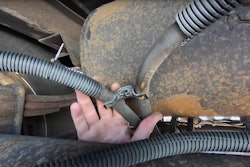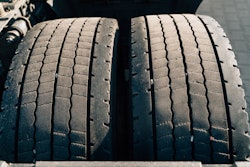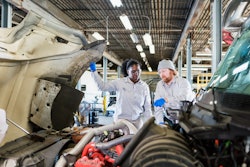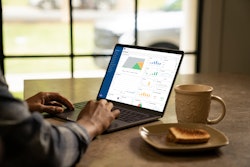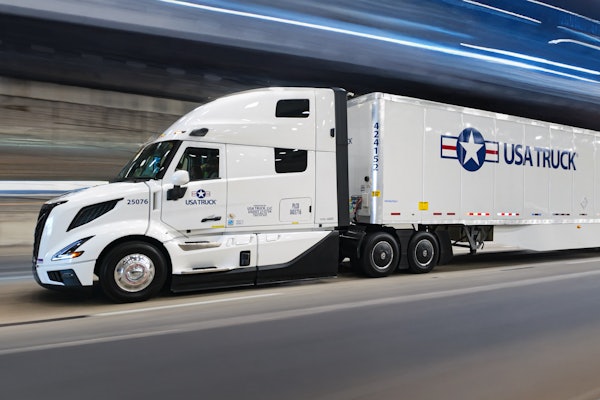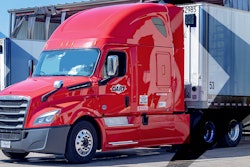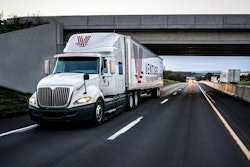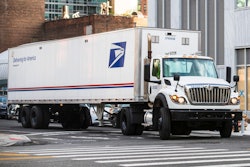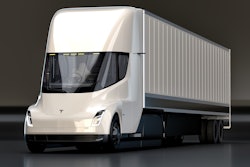
If you’ve found yourself shaking your head at how much it has cost to pay for a tank of diesel over the past year, you’re not alone. After hitting record fuel prices this summer, we’re finally getting some relief at the pump with prices on a downward trajectory. Still, the nationwide average per gallon remains above what it was this time last year, and certainly higher than what it was during the peak of the pandemic.
Its impact on operating costs has many fleets looking for solutions to reduce fuel consumption. Typically, those conversations start with specifications to improve the aerodynamics of the truck and trailer, powertrain performance, tires, coaching drivers to optimize fuel economy, and more. Rarely do they begin with alternatives to reduce or eliminate idle time, especially during a driver’s downtime to help power onboard electronics.
Did you know, a typical long-haul truck idles about 1,800 hours per year, consuming about 1,500 gallons of diesel? Considering idling burns roughly .08 gallons of fuel per hour, you can do the math on how much that’s currently adding up to be. Not to mention the wear and tear idling has on powertrain components, which the American Trucking Association estimates adds $2,000 per truck in maintenance costs annually.
While idling adds to operating costs, there is also increasing pressure from state and federal agencies to significantly reduce emissions caused by idling.
Cutting idle time by switching to alternative methods to power electronics and HVAC systems can significantly reduce operating costs over time and help trucks reduce emissions and stay compliant with local laws.
Many fleets are already using Auxiliary Power Units (APUs) to reduce engine runtime, maintenance and fuel usage – either through diesel APUs or ones that are battery/electric (EPUs) to power cooling and heating systems. Diesel APUs practically eliminate truck engine idling for hotel loads, but still require some fuel and maintenance themselves, although much less than idling the truck engine. EPUs do not require maintenance or fuel but do auto-start the truck from time to time when the batteries need to be recharged.
Inverters, which convert DC power to AC power, are widely used to power onboard electronics like CPAP machines, refrigerators, TVs, etc., but unless you’re connected to shore power, it isn’t an ideal way to power heating and cooling systems. Shore power provides unlimited power, but that isn’t always an option along a driver’s route, let alone finding a vacant space at a truck stop that does offer it. AC or DC heating and cooling systems draw a lot of power and can require multiple batteries to keep up.
With technology advancing, there are now better solutions to run all your electronics including climate systems that can supplement or replace traditional electronic powering techniques.
Switching from lead-acid or AGM batteries to lithium-ion
Unlike traditional batteries found in most over-the-road trucks, lithium-ion (Li-Ion) batteries are designed to be drawn down deep into the battery’s power storage. The main reason that lithium batteries are such a game-changer is that they can be completely discharged without damage and provide up to 8 to 10 times more cycles than the typical lead-acid battery.
Think of these batteries like the ones used in your smartphone. How many times have you drained the battery to 0% and it starts back up once it’s plugged into a charger like nothing happened? It's the same concept with the Li-Ion batteries in trucks. If you have a 600-amp hour lithium battery, you have 600-amp hours of usable power. Lead-acid batteries, on the other hand, can only be discharged 50% at most without causing them damage.
Most commercial vehicles have 400-amp hour battery banks, which only gives you 200-amp hours of usable power. Making that even less effective, most OEMs only allow you to discharge the batteries 30%, so in that case, you're hardly getting any usable battery power at all.
Li-Ion batteries also weigh 60 to 80% less than their lead counterparts and have an expected battery life of up to 10 times more than traditional batteries. A typical Group 31 battery weighs about 75 lbs. while a similar Li-Ion battery only weighs 28 lbs. A typical warranty on a traditional lead-acid battery is three years, but the importance of uptime can lead fleets to replace batteries much more frequently. A Group 31 Li-Ion replacement can come with a 10-year warranty, essentially designed to last through the ownership of the truck.
So why are lead or AGM batteries the standard in OTR trucks? Cost.
Li-Ion batteries on average may run 5 to 6 times more than traditional batteries. Li-Ion may cost more initially but are a better investment in the long run since it can offer up to 10 times more cycles and give constant voltage through the entire cycle of the battery.
Trickle charging with solar power
Drivers using AC units to keep cool, plus other electronics drivers use during their downtime, draw a lot of power. Even though most trucks are on the road for seven to 10 hours every day, and the truck alternator provides enough power to charge the lithium pack, adding solar is the icing on the cake to keep the battery fully charged and extend its lifespan.
Solar acts as a secondary charging source for house batteries and battery based APUs, all of which, if not properly charged, can create downtime and lost productivity. Park a truck and measure how much power is being depleted out of the battery — it's significant. All the computer sensors and electronic devices in the truck are constantly drawing power. If you're just off-venting parasitic loads, which is the major issue with sleeper cabs, a 165-watt solar panel measuring approximately 3'x4' is sufficient and can be mounted inconspicuously in places on tractors, including roof fairings, sleeper roofs and trailers (any area that has direct access to sunlight). Thinner, flexible solar panels also mean improved aerodynamics. Some thin, flexible panels available on the market are literally peel-n-stick, which enables installation of panels without drilling a hole. This simplifies an otherwise complex installation in some cases.
Solar panels connect to the batteries by way of a “charge controller” that regulates the power being delivered and ensures it’s the right voltage for the specific type of battery. There are also products available that integrate with inverters and chargers that display data that lets you know exactly how the solar system is functioning.
Sure, solar panels are technically dependent on the sun, but advancements with this technology have come a long way since it was first brought to market. These panels can still harvest quite a bit of power, even on cloudy days. Connecting solar panels to Li-Ion will produce the most efficient results, although they can be paired with traditional batteries.
Not only can solar extend the time you’re able to draw power from your batteries, but also they help improve overall battery health. In fact, trickle charging with solar can increase all battery lifespan by up to 50%.
Hybrid power control solutions
If a driver or fleet wanted to go all out on configuring their trucks to generate an endless supply of electricity to power heating and cooling systems and other electronics, and installation costs didn’t matter, there are systems that can deliver that. Bundling Li-Ion batteries with solar and adding hybrid power control systems that charge batteries natively from an alternator can achieve it. Control power systems, like ZeroRPM by Mission Critical Electronics, is a centralized system that stores power generated through running the engine by driving, solar, line chargers and other power generating devices it’s connected to, in addition to the truck’s main battery.
It holds enough power to keep batteries charged, allowing you to efficiently run all connected devices in the cab. With a combination of Li-Ion batteries, solar panels and this hybrid control system, you could pump the AC all night, watch TV, keep your food cold in the refrigerator and charge electronic devices without any worry of draining your battery or needing to start the engine.
These types of power control systems are most popular with work truck operators needing to power take-off equipment like booms, lifts, hydraulic buckets, etc., while the engine is off. But, for a driver or fleet that wanted the ultimate in-cab experience to power electronics any time of day without needing to fire up the engine, connect to shore power, or use fuel, there are premium packages out there to do that.
With the recent advancements in electrical technologies, there are now more efficient and cost-effective ways to power onboard electronics without needing to burn fuel or limit use if shore power isn’t available. It’s easy to see how solar and lithium can save the day when it comes to increasing battery life and reducing maintenance and fuel consumption. That’s especially so when hybrid power control systems are added to the mix. It won’t be long until idling to keep batteries charged is a thing of the past. And with what the prices for diesel have been recently, you wouldn’t want to idle long anyway.


